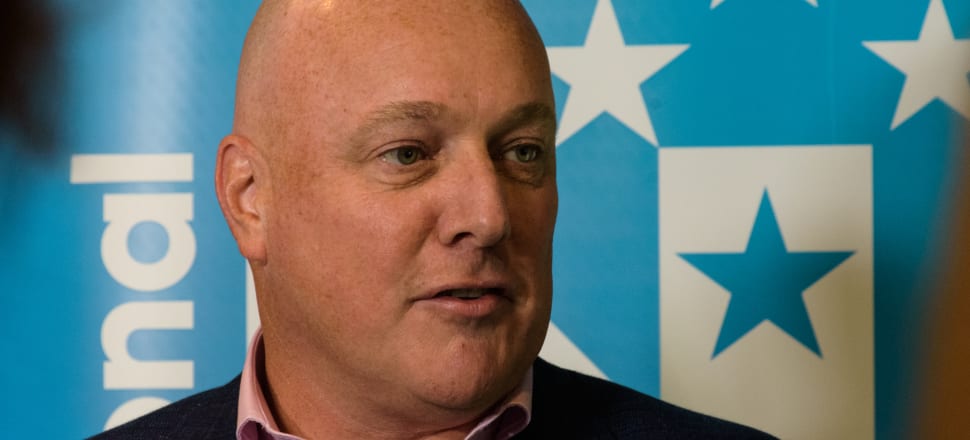
National is first out the gate with a climate policy before the election, but one good idea won't plug the yawning gap Christopher Luxon will create if he axes most of the Government's programme
Analysis: National's first climate policy going into this year's election is clearly a good idea.
It got some begrudging praise from Greenpeace, and the Green Party decided it was better to accuse National of stealing their ideas than to rubbish the proposal.
National Party Leader Christopher Luxon announced on Friday that National would shorten consent and re-consent timeframes for renewable energy projects to just one year, if elected. They would also lengthen the minimum time companies would have to use the consents to 35 years and break down barriers to consenting transmission and distribution upgrades.
"Electrify NZ will help double the amount of renewable energy available and put New Zealand on track to reach its climate change goals," Luxon said.
READ MORE:
* Our climate change policies are a mess
* Assessing Labour’s record on climate change
* In 2023, climate will get political
"Forty percent of New Zealand’s emissions come from transport and energy. Switching those sectors to clean electricity could deliver almost a third of the emissions reductions New Zealand needs to reach Net Zero by 2050."
It sounds a bit dry but it's very important. Consents can take the better part of a decade to earn as it stands and some generators say the Government's resource management reforms could turn consenting into the single biggest barrier to building more renewable generation.
As Luxon says, that generation is crucial. According to Transpower, as much new generation needs to be built in the next 15 years as was built in the past 40.
A lot of National's changes would come in the form of a new National Policy Statement on Renewable Electricity Generation, updating the last version, which was passed in 2011. That's what Green Party co-leader James Shaw focused on in his response.
"The centrepiece of the National Party’s announcement is already in the Emissions Reduction Plan the Government released last year," he said on Friday.
"In fact, almost everything in this morning’s climate announcement is already underway. While I’m glad Mr Luxon is copying our homework, the policy is unnecessary."
Shaw then pivoted to attacking Luxon for National's other climate policy - a pledge to roll back the Government's ban on new offshore oil and gas exploration.
"Most people will see through a party that wants to both cut fossil fuel use and expand fossil fuel exploration," he said.
This is only the opening salvo in an ongoing climate debate leading up to the election. But it may well become a familiar pattern by the time we get to October 14.
This is just the first of National's climate policies, with Luxon promising more to come including something focused on agricultural emissions. The Government is likely to follow a similar playbook for future announcements, responding to National's good ideas by accusing them of copying notes and then dragging the focus back to the obvious gaps in the party's plan.
To be fair to National, they don't have the same starting point as the Government. Labour and the Greens are building off of the massive Emissions Reduction Plan, as well as five years of climate policy while in government. They'll have new suggestions going into the election, to be sure, but are working from a solid foundation.
National has no such foundation. It has painted itself into a corner, to some extent, by rubbishing almost everything the Government has done on climate change other than setting targets.
If Luxon wants to repeal marquee policies such as the oil and gas exploration ban, the Clean Car programme and the agricultural emissions pricing scheme, then he needs to set out what he'll do to plug the gaps he's creating.
That's a much harder job for Luxon, who has no army of public servants to do the legwork for him, than it is for the Government.
The other option is that Luxon puts together a handful of policies in the vein of Electrify NZ - solid ideas but nowhere near a replacement for the totality of the Emissions Reduction Plan - and campaigns hard on them. Yes, Shaw and Prime Minister Chris Hipkins will hit Luxon for failing to plug the gaps, but it's not at all clear whether the public cares that much about the detail of climate policy.
It may well be the case that, so long as every party is talking about climate change, the electorate is satisfied. That would make for a low-quality climate debate, but shouldn't surprise us given what we know about the average New Zealander.
Poll after poll shows we're among the most climate-concerned in the world - but also the least likely to change our personal behaviour to contribute to the fight against climate change.
If we're allowing ourselves to get away with rhetoric over substance, why shouldn't political parties try to do the same?







